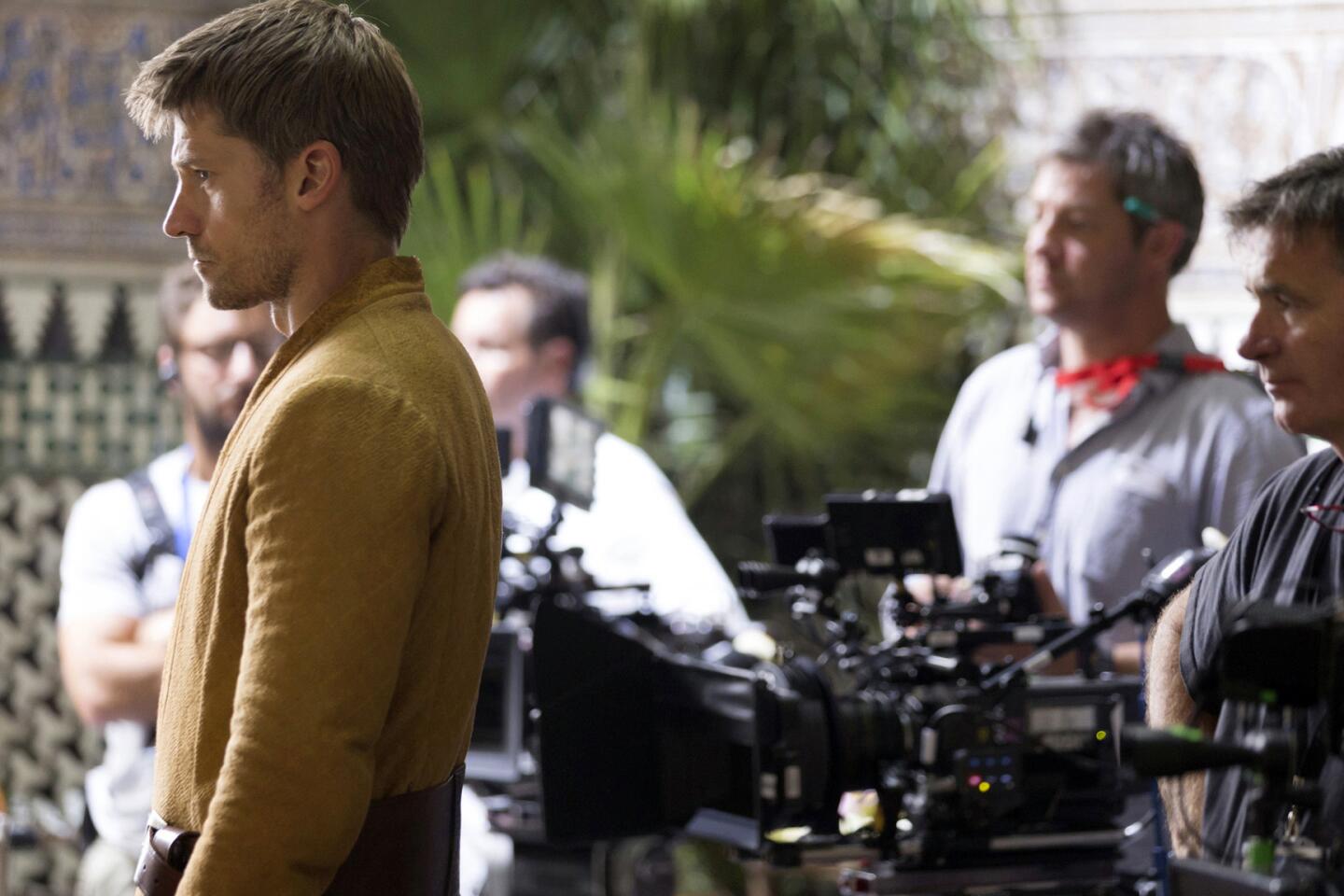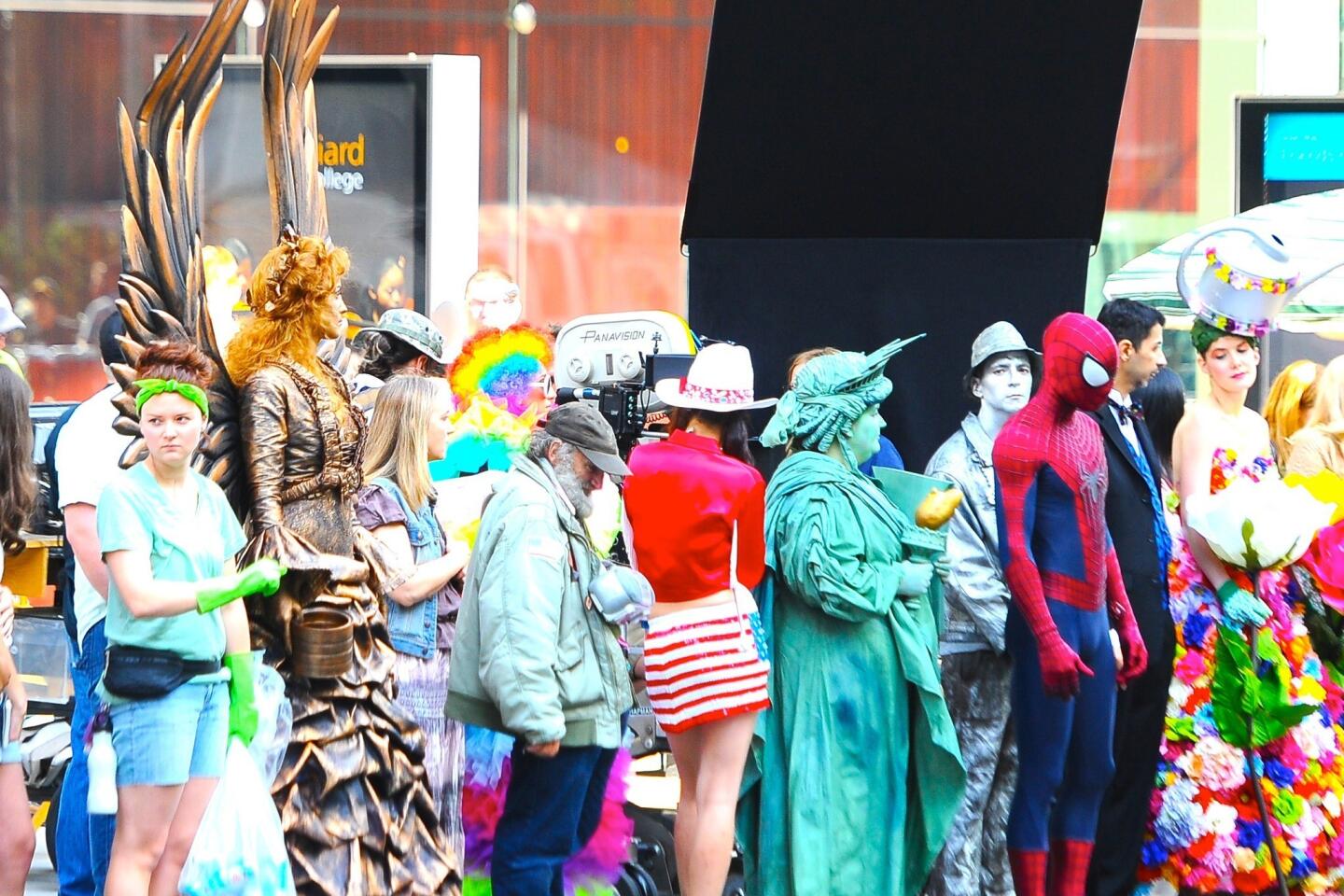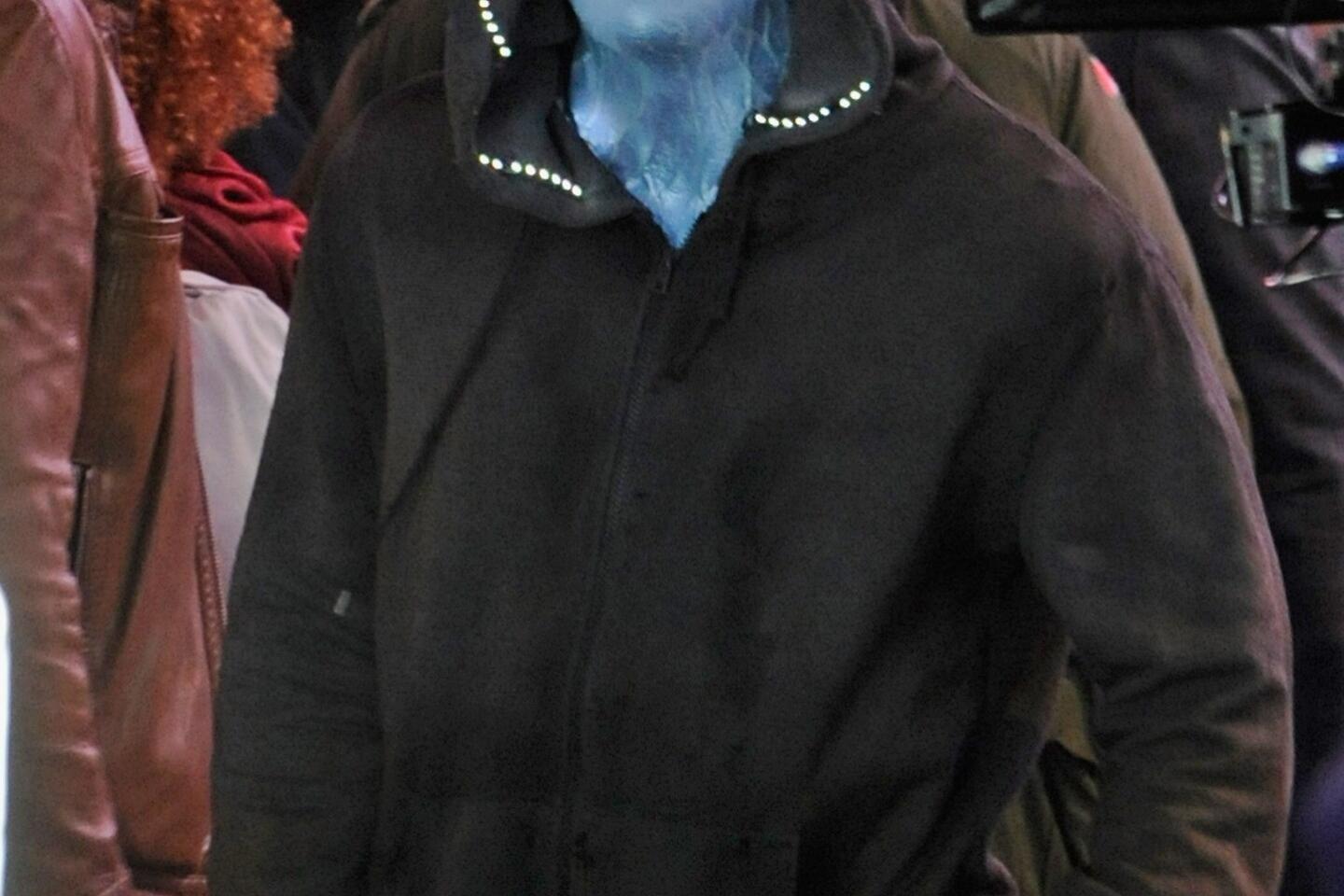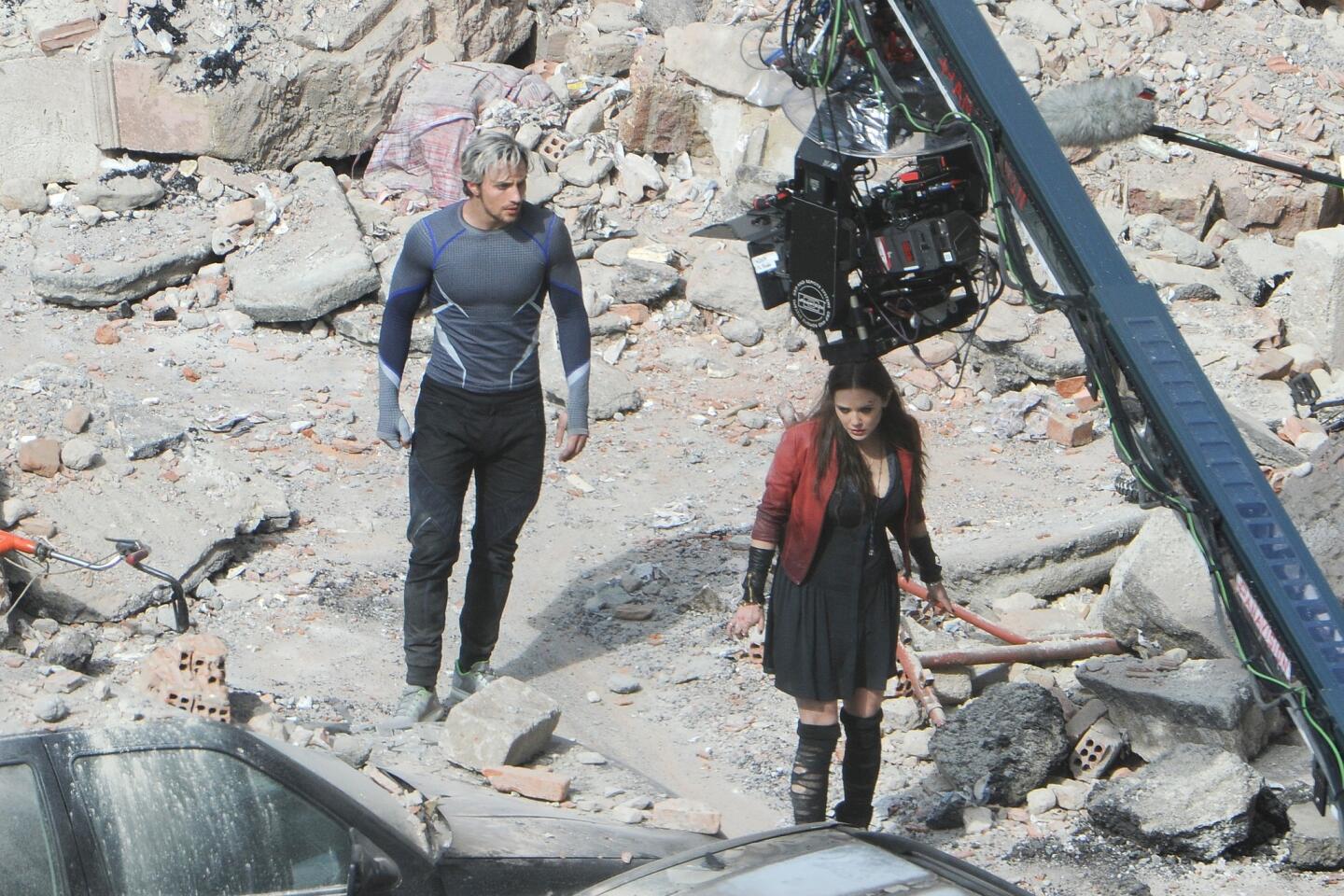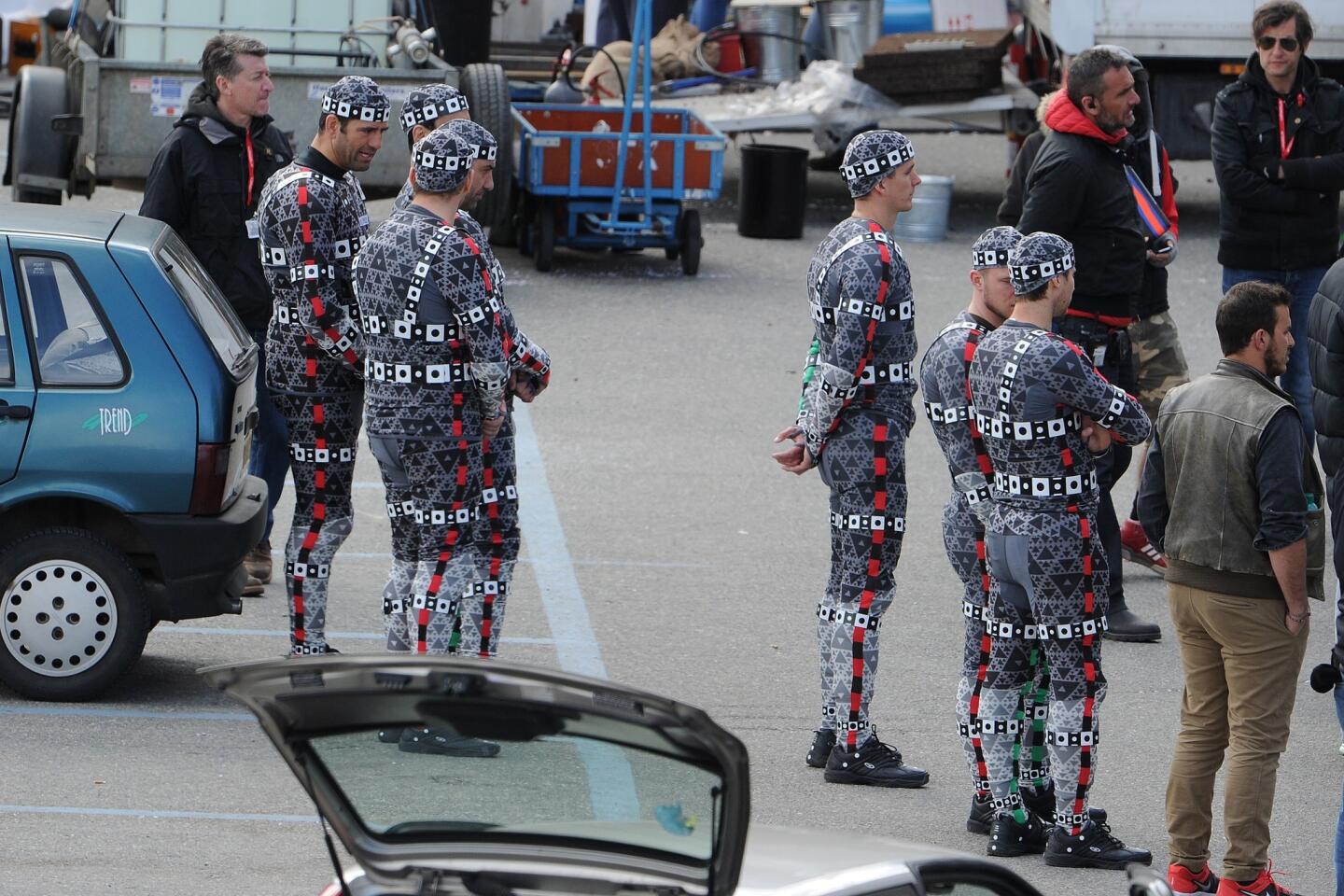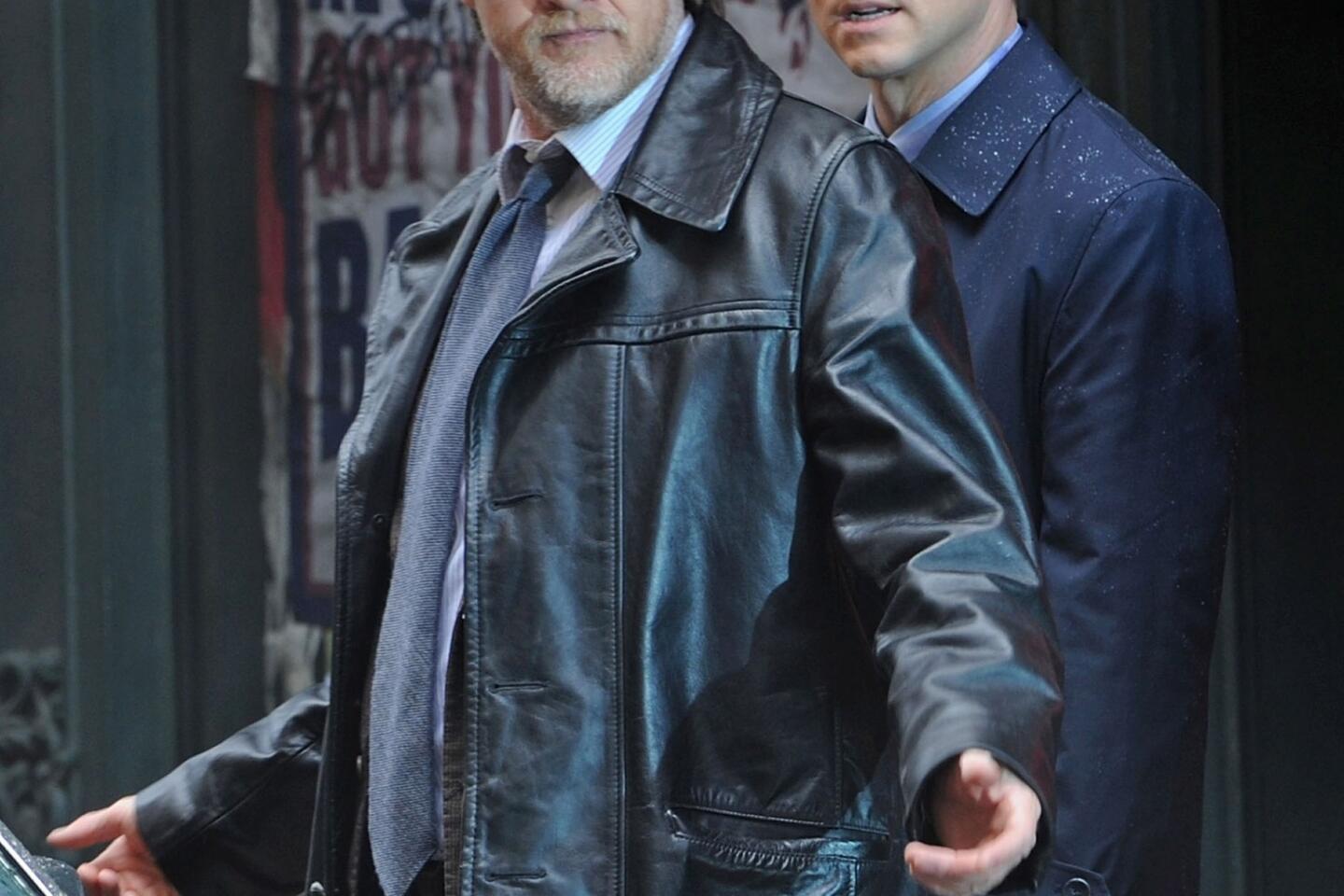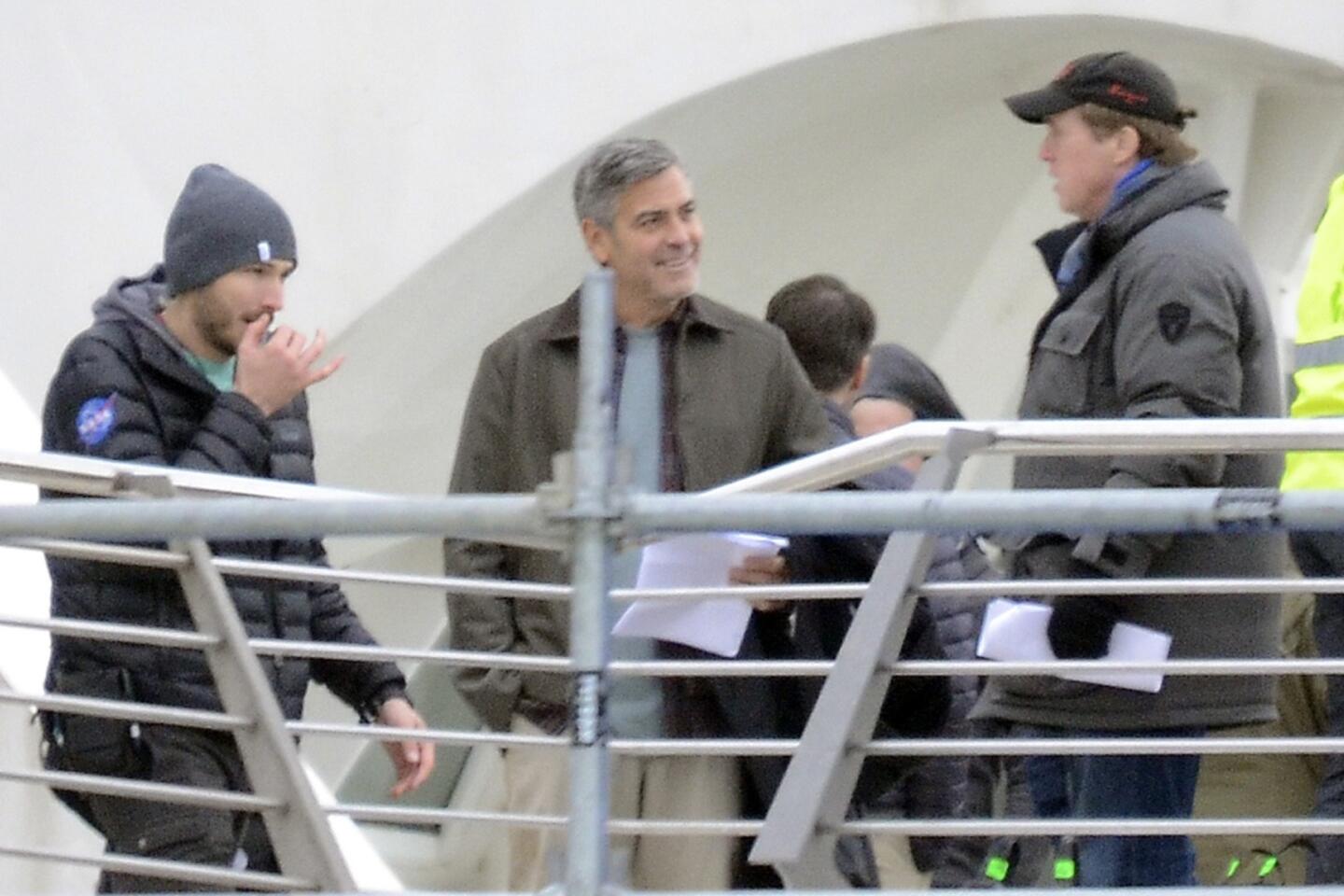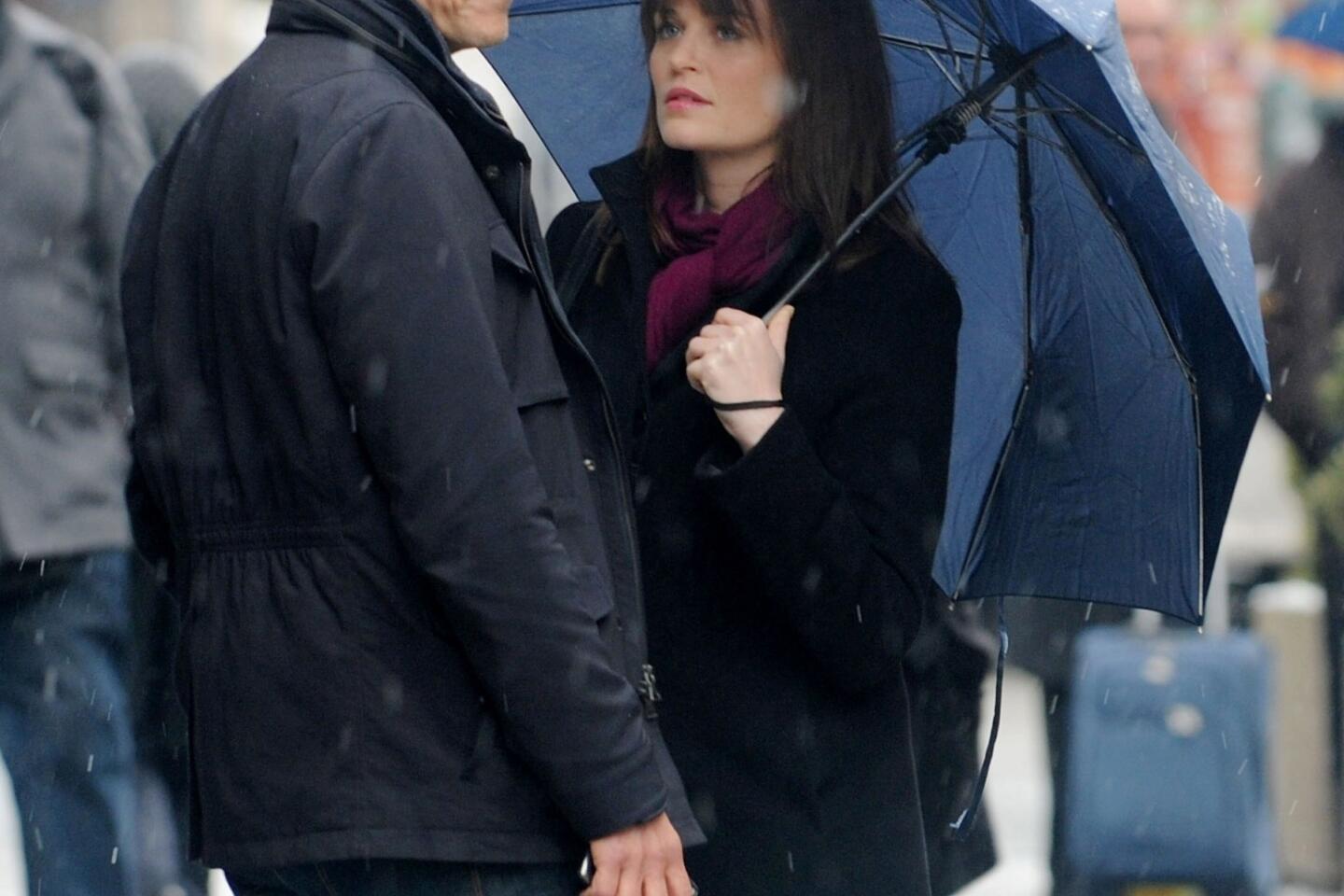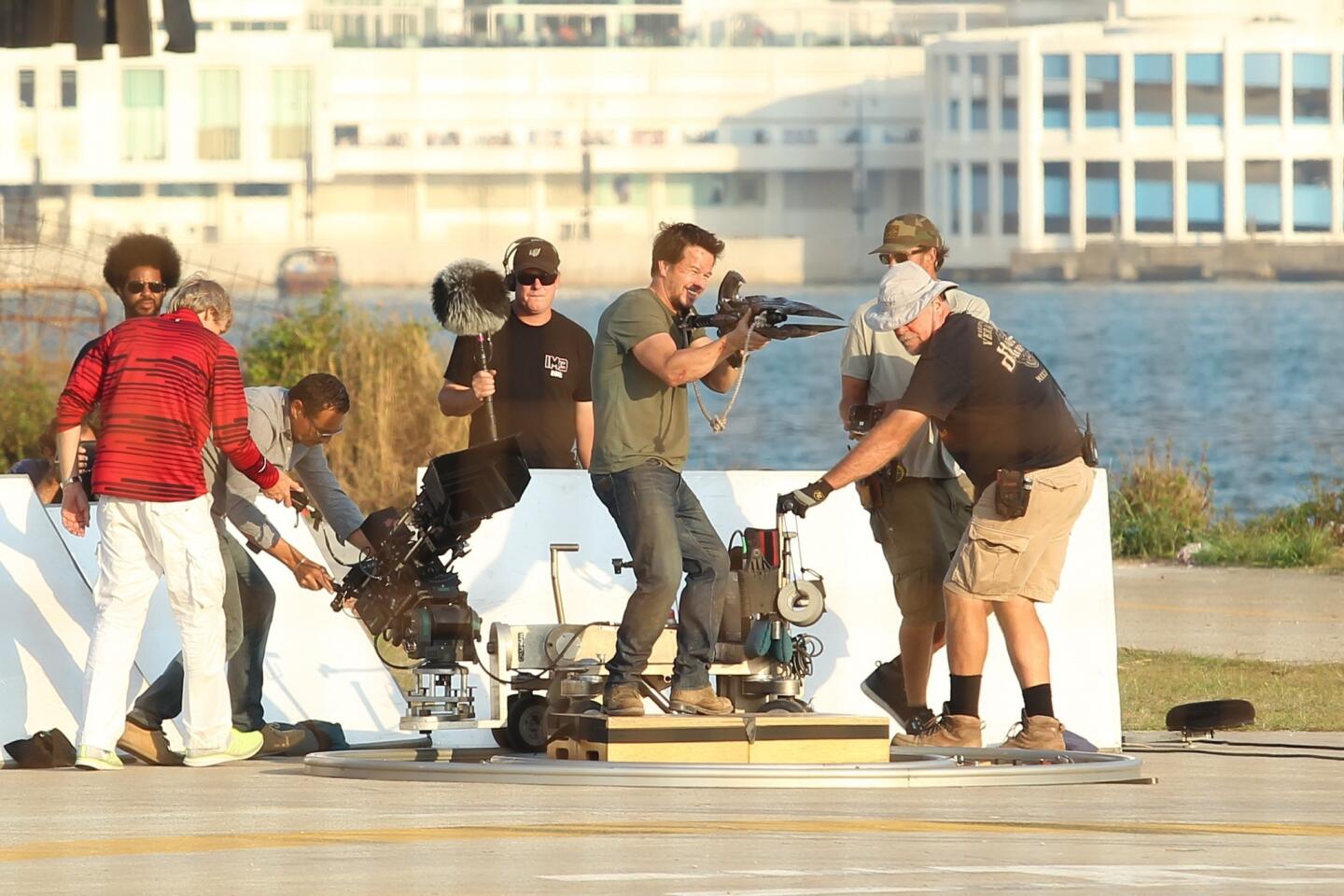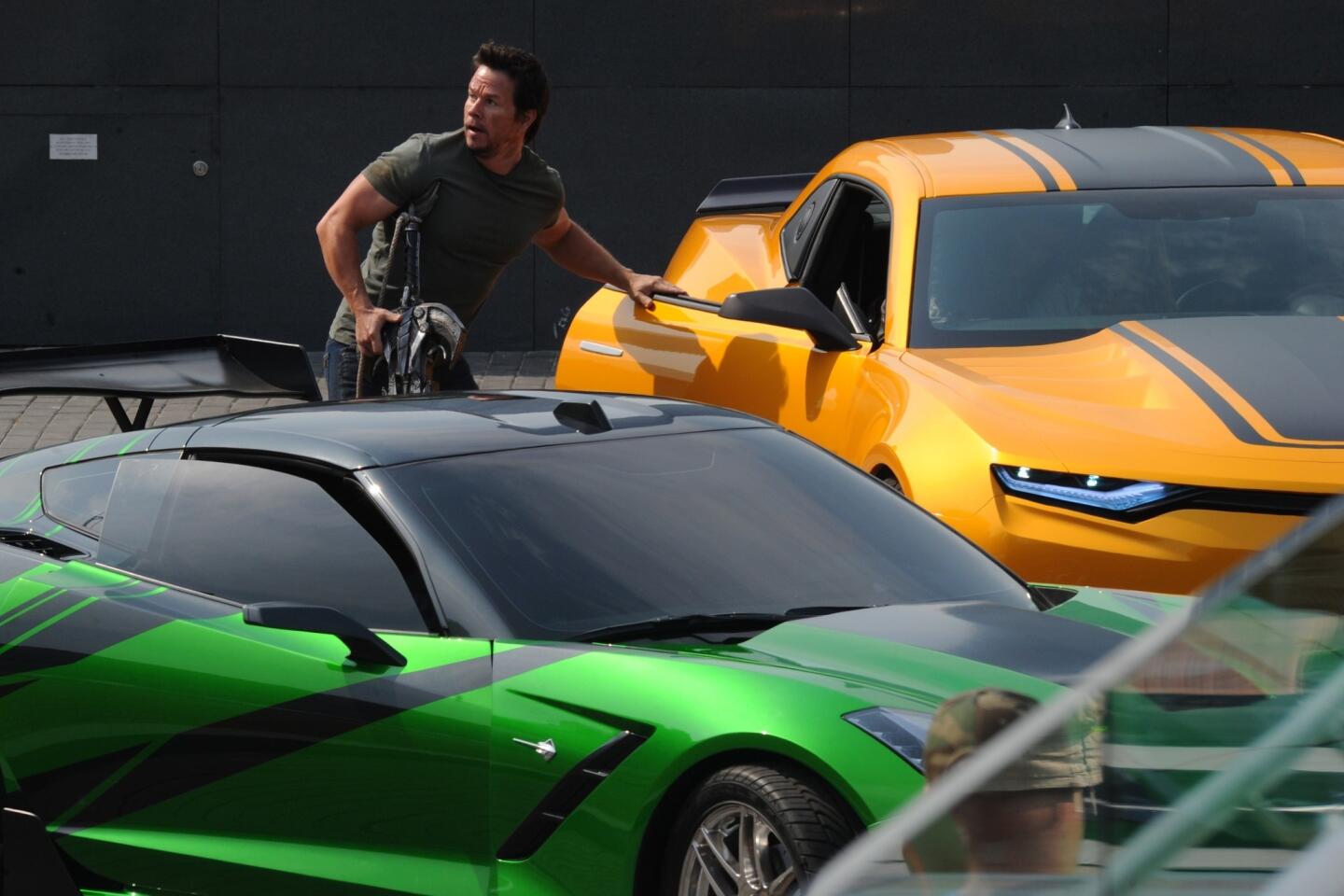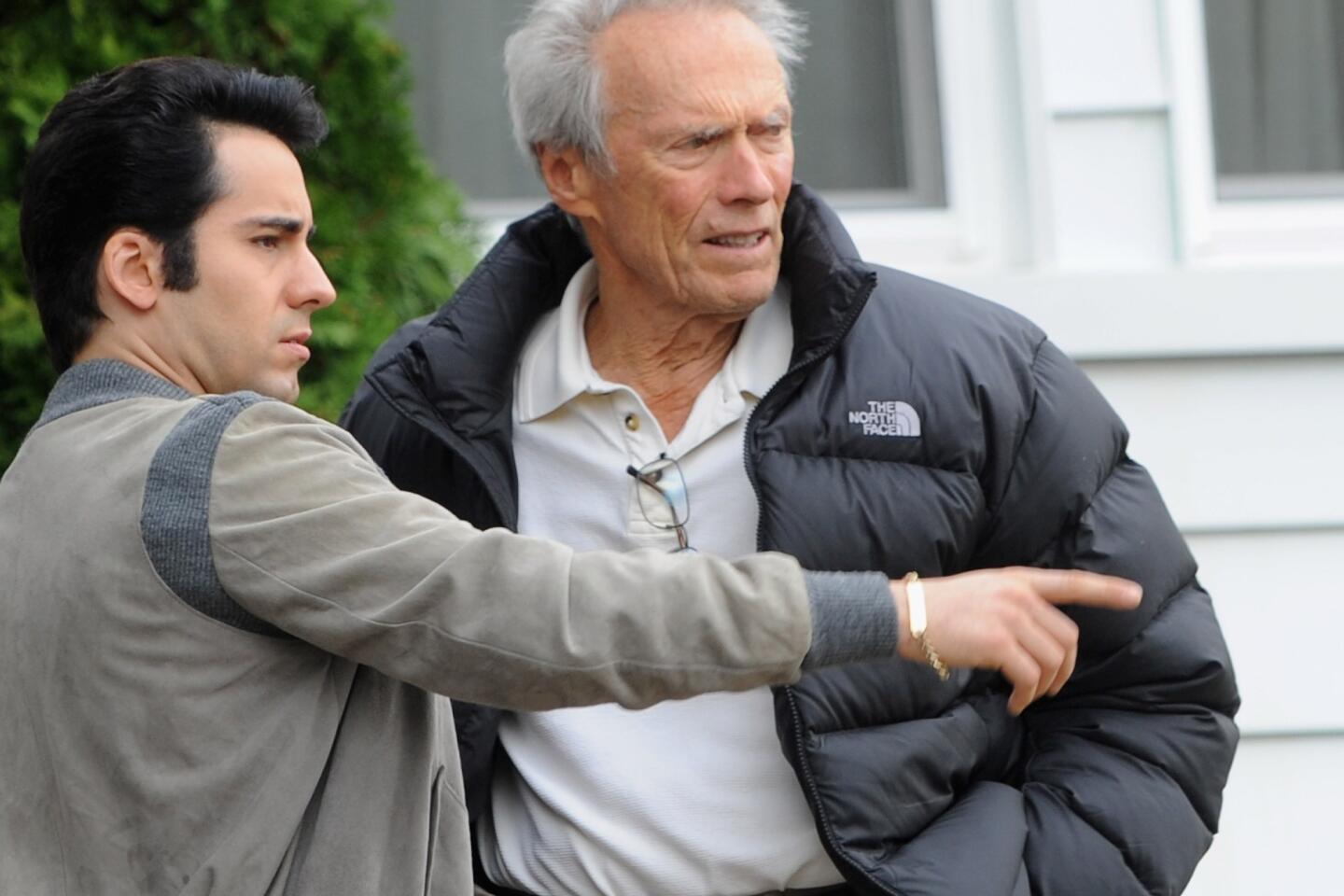From ‘Titanic’ with Buddhist monks to Spielberg in Saudi Arabia
- Share via
In a canvas tent in the Himalayan foothills, where winter breaths drifted in the twilight, Tibetan monks, their feet dangling from benches, watched a pirated copy of “Titanic.” The diminutive men, camped along a rutted road leading to the Dalai Lama’s residence in exile near Dharamsala, India, did not understand what Kate Winslet and Leonardo DiCaprio were saying. But they knew the sleek black steel and tinkling jewelry were sailing toward doom.
A cold wind shook the tent, but the monks, some fidgeting with prayer beads, others bundling their burgundy robes in coats, were entranced at the grainy spectacle before them. Shopkeepers, laborers and boys sat beside the monks, and their small, mystical world quieted as the ocean liner pitched and descended spear-like into the icy depths.
The holy men hurried out as the credits rolled, dispersing into the night toward huts and monasteries. Once again I was struck, as I had been time and again living abroad as a foreign correspondent, by the power that an American film has on the global imagination. At the same time, I wondered: Hollywood often boasts of penetrating borders, languages and cultures, but does it fully understand or care about the ramifications of that conceit?
BEST MOVIES OF 2013: Turan | Sharkey | Olsen
I watched movies in Rome, Vienna, Belgrade, Warsaw, Berlin and other cities. I sat amid the ruins of Sarajevo as a film (I can’t remember the name; the reality around me was too arresting) played on a screen stretched across a bullet-scarred wall. I listened as bemused Bulgarians in Sofia attempted to fathom the bone-cracking hysteria of American football in Oliver Stone’s “Any Given Sunday.” The movie gave me a pang of nostalgia for my native land, but at least half of the audience walked out. To the Bulgarians and most of the planet, football is “the beautiful game” of swift feet and graceful teamwork, not a brawl by armies outfitted in helmets and shoulder pads.
Perhaps more than U.S. foreign policy, Hollywood crystallizes to the world who we are as a nation, our exuberance, righteousness, desires, anxieties and our predilection, through the prism of action heroes and special effects, for freewheeling individualism and blowing things up.
This was a strong year for intelligent scripts, such as “Nebraska” and “American Hustle.” Many of the best films focused on well-drawn characters working out moral ambiguities in these uneasy times. But in much of what saturates foreign markets — or for that matter American cineplexes — nuance and subtlety are outgunned by music-pumped adrenaline, gadgets and violence. Hollywood’s foreign box office, which increasingly drives the business, reached $23.9 billion in 2012, or about 69% of all international ticket sales. Among the top-grossing films worldwide in 2013 were “Iron Man 3,” “Fast and Furious 6” and “Thor: The Dark World.” Simply put, big and loud sells.
Biggest box office flops of 2013
Conservative Middle East audiences in particular tend to regard Hollywood as a curious mirror of Washington’s strategies: the corruption of morals through romantic comedies and the undisguised swagger and bravado in action films. The real-life drones flying over Yemen and Pakistan blur with the spinning titanium, pyrotechnics and omnipresent terrorist in “Iron Man 3.” Foreigners often see villains, especially since 9/11, as conjured to stoke American nationalism.
Imagine being an Islamist militant in the mountains of Afghanistan and streaming the miasma of excess, drugs, sex and nudity in Martin Scorsese’s “The Wolf of Wall Street.” Times film critic Kenneth Turan recently posted this on Twitter: “Email from a screenwriter friend of mine after seeing ‘The Wolf of Wall Street’: ‘Maybe the Taliban have a point ....’ ”
Paul Greengrass’ “Captain Phillips” broke stereotype in its portrayal of a Somali pirate not as a fanatic but as a fisherman driven by desperation and wedged between Western interests and his own crumbling state. Sitting in a foreign theater can underline such distinctions but can also pose uncomfortable questions.
In Baghdad in 2008, I watched “Cloverfield” — in which a skyscraper-sized monster crushes Manhattan — with two Iraqi friends. Who did the monster represent to them? Saddam Hussein or the U.S. military, whose invasion and occupation brought suicide bombers, blast walls and countless graves?
The answer was both, said one of them, who over years of bloodshed had perfected his impersonation of President George W. Bush. However, the American monster, he suggested, had wreaked more destruction than the homegrown tyrant. Despots such as Hussein and Libyan strongman Moammar Kadafi were much on the minds of filmgoers across the Middle East over the last decade, revealing the contradictions of American foreign policy as it strained to keep pace with the democratic ambitions of young Arabs.
A global cinema
The movie theater in Cairo was crowded in 2010 as “Avatar” sprung to vivid life (James Cameron draws large international audiences). The soulful blue creatures of Pandora known as the Na’vi battled a corporation seeking to mine their resources and destroy their paradise.
I wondered whether the Egyptians identified with the Na’vi. At the time, they were growing restive against the U.S.-backed police state of President Hosni Mubarak. They would overthrow him less than a year later in a revolution that was as cinematic as it was, if only for a moment, liberating.
The Egyptian audience, including women in head scarves, was markedly different from the crowd of European envoys and businessmen who gathered years earlier in a Renaissance-era Italian villa in Rome for a private screening of “Eyes Wide Shut,” starring Tom Cruise and Nicole Kidman caught in a Dante-esque, Inferno version of a marriage complete with orgies and intrigue. When the lights went up, one diplomat, a discreet man with gleaming cuff links, proffered: “All those beautiful, naked women and yet no arousal.”
GRAPHIC: Faces to watch 2014 | Entertainment
More perplexed than shocked, the diplomat stepped out for a smoke and a Chianti, walking through a garden lined with statues of unknown centurions.
I once drove through the call to prayer across the desert outskirts of Riyadh, Saudi Arabia, where young, dissident filmmakers fidgeted with cameras and sound equipment in a locked apartment. Fundamentalist clerics say movies are forbidden (haram); they are the devil’s tapestry. The men ate pizza, kept their ears peeled for the “virtue police” and debated the merits of Steven Spielberg. Some of them argued that the director was overtly emotional and less intellectual than the French New Wavers and Italian neo-Realists.
“You wouldn’t even be here if it weren’t for Spielberg. Look what he’s done,” a Spielberg fan shouted, listing the range of the director’s films from “E.T. the Extra-Terrestrial” to “Schindler’s List.”
In that instant, the world’s language was not Arabic, English or French. It was film. The scene revealed how deeply Hollywood has infused its charms into global culture. It is, to many, the world’s common denominator, the rubric through which sins are weighed, romance is played and war is waged. No other film industry is so sophisticated, so technologically nimble, so savvy in marketing and deep in pocket.
But these days nearly all corners of the planet are switching on iPhones and posting on YouTube. And, like the Saudi auteurs, young international directors and screenwriters are seeking nuances in their own cultural narratives. After years of war in the Balkans, independent Serbian directors (my Serb translator had honed her expletive-flecked English from “The Godfather” and “Goodfellas”) in the early 2000s explored the complicity and the psychological numbness left by ethnic bloodletting. A new breed of German directors is keen to look beyond their nation’s past to the more pressing problems of immigration, drugs and the strains of reunification.
PHOTOS: Box office top 10 of 2013
“Growing up in school, we talked for three or four years about Hitler and what happened,” Till Endemann, a young director, told me years ago at the Berlin Film Festival. “We know the history. This baggage, which we should carry, is getting lighter, though, and I think it is allowing us to tell better stories. We see our country in a different light than the generations before us. We’re not nationalists or patriots. But we view Germany today as a country that needs to be filmed.”
Hollywood has provided superfluous escape to generations, but some now crave deeper sustenance and a more accurate vision of America’s role in the world. “Captain Phillips” and J.C. Chandor’s “All Is Lost,” starring Robert Redford as a lone sailor pitted against the elements, offer their own metaphors on Washington’s economic and political interests. The travails encountered by Redford’s seaman begin when his sailboat collides in the Indian Ocean with a wayward cargo container carrying sneakers (the suggestion is that they were Chinese-made).
Indeed, China and Hollywood — money and markets are tantalizing conspirators — have a new wrinkle in their sensitive relationship. It wasn’t long ago that films, such as “Seven Years in Tibet,” pointed to Beijing’s human-rights abuses in its treatment of Tibetans. These days Hollywood is criticized for a more ingratiating approach toward China, which is on a massive spree to build theaters. The invaders in “Red Dawn” were changed to North Korean from the originally scripted Chinese, and in the disaster movie “2012” the White House credits the Chinese scientists for saving Western civilization.
But the Chinese film market, which, like all else in the country, is controlled by the Communist Party, was strong against imports in 2013. Chinese films accounted for seven out of the nation’s top 10 hits, compared with Hollywood’s three. Those statistics and other factors suggest the traditional Hollywood hit may face increasing competition on two fronts: a potentially restrictive Chinese market and, more broadly, from the changing tastes of international audiences.
It makes ones wonder where Hollywood is headed: making more films that recognize the complexity and smallness of today’s world or cranking out the tried-and-true, big-bang blockbuster that over time may begin to lose its resonance.
The small tent in the Himalayan foothills that served as a theater for “Titanic” those many years ago went black. The monks vanished into a night filled with stars. I have watched hundreds of movies in different places since but have seldom been more moved by the power of film to bring us, if only for a moment, to a shared place.
Fleishman, a foreign correspondent for 17 years, was based in Rome, Berlin and Cairo. He now covers the arts and entertainment in Los Angeles.
More to Read
Only good movies
Get the Indie Focus newsletter, Mark Olsen's weekly guide to the world of cinema.
You may occasionally receive promotional content from the Los Angeles Times.




